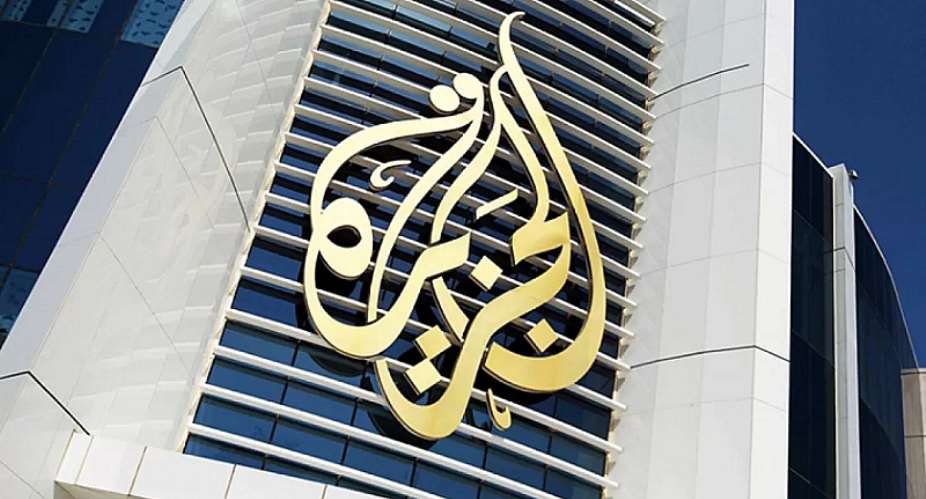The escalating conflict between Israeli Prime Minister Benjamin Netanyahu and Al Jazeera, a prominent international news network, underscores the tension surrounding press freedom and journalistic integrity. Netanyahu’s accusations of Al Jazeera’s involvement in undermining Israel’s security and inciting violence against Israeli soldiers, contrasted with Al Jazeera’s staunch denial and accusations of baseless fabrications, present a complex narrative that warrants thorough analysis.
Netanyahu’s Allegations
Netanyahu’s initiation of an aggressive campaign against Al Jazeera, particularly in the aftermath of the October 7 attack, raises questions about the motives behind such accusations. Alleging the network’s involvement in inciting violence and jeopardizing Israel’s security, Netanyahu aims to discredit Al Jazeera and suppress its reporting. However, the lack of concrete evidence supporting these claims casts doubts on the credibility of Netanyahu’s allegations. Instead, they appear to serve as a means to stifle dissenting voices and control the narrative surrounding Israeli policies and actions.
Al Jazeera's Defense
In response to Netanyahu’s accusations, Al Jazeera vehemently refutes the claims, asserting its commitment to professional journalism and press freedom. The network argues that Netanyahu’s actions pose significant risks to the safety of its staff and facilities worldwide, as they fuel hostility towards its personnel. Moreover, Al Jazeera portrays Netanyahu’s campaign as part of a broader pattern of systematic attacks aimed at silencing the network and suppressing its coverage of critical events. The network cites instances of targeted violence against its journalists and facilities, including assassinations, bombings, and intimidation tactics, as evidence of ongoing efforts to undermine its operations.
Press Freedom at Stake
The conflict between Netanyahu and Al Jazeera highlights the broader implications for press freedom and journalistic integrity. By targeting Al Jazeera and attempting to discredit its reporting, Netanyahu’s actions set a dangerous precedent for the suppression of dissenting voices and independent journalism. Furthermore, the accusations against Al Jazeera not only undermine the network’s credibility but also jeopardize the fundamental principles of free speech and media plurality. In a democratic society, the ability of journalists to report without fear of reprisal is essential for holding those in power accountable and fostering informed public discourse.
Conclusion
The clash between Netanyahu and Al Jazeera underscores the importance of defending press freedom in the face of political pressure and censorship attempts. As Al Jazeera continues to stand firm in its commitment to professional journalism, it is essential to support its efforts to address baseless allegations and safeguard its integrity and freedom of the press. Moreover, this conflict serves as a reminder of the critical role that independent media outlets play in upholding democratic values and promoting transparency and accountability within society.
Richmond Acheampong is a communication specialist, consultant, independent journalist and columnist. He holds a PhD in Journalism and can be contacted through [email protected]





 Limited voter registration: Keep recording BVR serial numbers with or without EC...
Limited voter registration: Keep recording BVR serial numbers with or without EC...
 2024 elections: Don't fight for any politician, they're either friends or relati...
2024 elections: Don't fight for any politician, they're either friends or relati...
 Akufo-Addo hiding full KPMG audit report on SML deal because family members, fri...
Akufo-Addo hiding full KPMG audit report on SML deal because family members, fri...
 Akufo-Addo’s 'yenkyendi' government has collapsed state-owned companies — Mahama
Akufo-Addo’s 'yenkyendi' government has collapsed state-owned companies — Mahama
 Ekow Ewusi's bodyguard allegedly brandish gun at voter registration centre in Ca...
Ekow Ewusi's bodyguard allegedly brandish gun at voter registration centre in Ca...
 You should've apologised to EC for erring — Dr. Serebour to IMANI
You should've apologised to EC for erring — Dr. Serebour to IMANI
 WAEC introduces three new subjects in 2024 BECE
WAEC introduces three new subjects in 2024 BECE
 Social media influencer buries himself alive to earn more views and likes
Social media influencer buries himself alive to earn more views and likes
 E-VAT implementation not in limbo, but in rollout phase — GRA clarifies
E-VAT implementation not in limbo, but in rollout phase — GRA clarifies
 Releasing serial numbers of BVR kits poses substantial risk to voter registratio...
Releasing serial numbers of BVR kits poses substantial risk to voter registratio...
